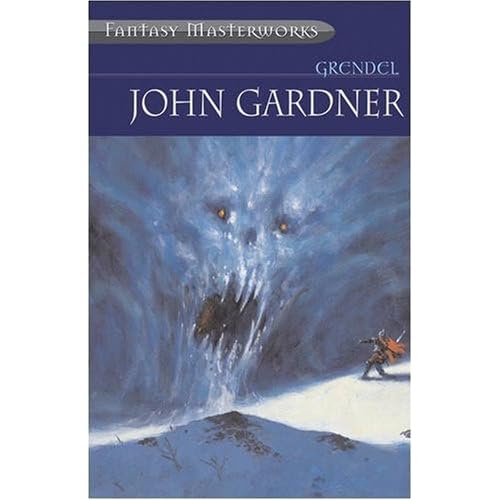 While Ulysses and Lolita are both novels rich in allusion, the biggest difference between the two is that it's nearly impossible to get past the first page without taking that layer into consideration when it comes to the former while the latter is digestible without consciousness of the complexity that is Nabokov. John Gardner's Grendel is deceptive in the same way that Nabokov might lull unperceptive readers as the text works on multiple levels at the same time working just as effectively on the most basic of readings.
While Ulysses and Lolita are both novels rich in allusion, the biggest difference between the two is that it's nearly impossible to get past the first page without taking that layer into consideration when it comes to the former while the latter is digestible without consciousness of the complexity that is Nabokov. John Gardner's Grendel is deceptive in the same way that Nabokov might lull unperceptive readers as the text works on multiple levels at the same time working just as effectively on the most basic of readings.On the surface, Grendel can be read as prologue to the Beowulf myth but what resonates more is its use of the antagonist's point of view--a decade before Mists of Avalon and its ilk. Unlike such retellings, Grendel remains a villain through and through, although what differentiates him is that Gardner portrays him with a certain humanity and more importantly, possessing a keen mind as opposed to the childish beast that is typically how he is characterized. It's not that readers are rooting for Grendel but we understand his motivations and we're hooked by the narrative. Admittedly, Grendel has a brutal and slow opening chapter, but events pick up as we progress through the book.
A deeper awareness of the text however excuses any perceived flaws as they are all intentional. Gardner attacks from several directions that I don't know where to begin. On one hand, there's the philosophical themes tackled in the book, especially Grendel's solipsism. There's also elements of metatextuality with the inclusion of the Shaper, a bard, and how Grendel's existence defines the heroism of protagonists. There's also the use of modern concepts and cliche, especially during the chapter in which Grendel holds a conversation with the dragon, in addition to various experiments in form and structure. There's a lot of commentaries that Gardner manages to sneak into the narrative such as the role of politics and religion but citing them all seems like a masturbatory exercise on the part of the reviewer. Suffice to say, it's all there if one cares to peel the many layers, and I'm sure I've missed a couple.
Suffice to say, for its length and scope, Grendel is ambitious yet accessible. It's a competent narrative if one reads it with the training wheels on but there's also a rewarding experience of interactivity when one rereads and pays a closer attention to the text. It's literary and fantastical and metatextual all at once, and unlike James Joyce, won't break or intimidate new readers.
2 comments:
Oddly enough, I'm in the middle of reading this book!
paul
Hope you enjoy!
Post a Comment